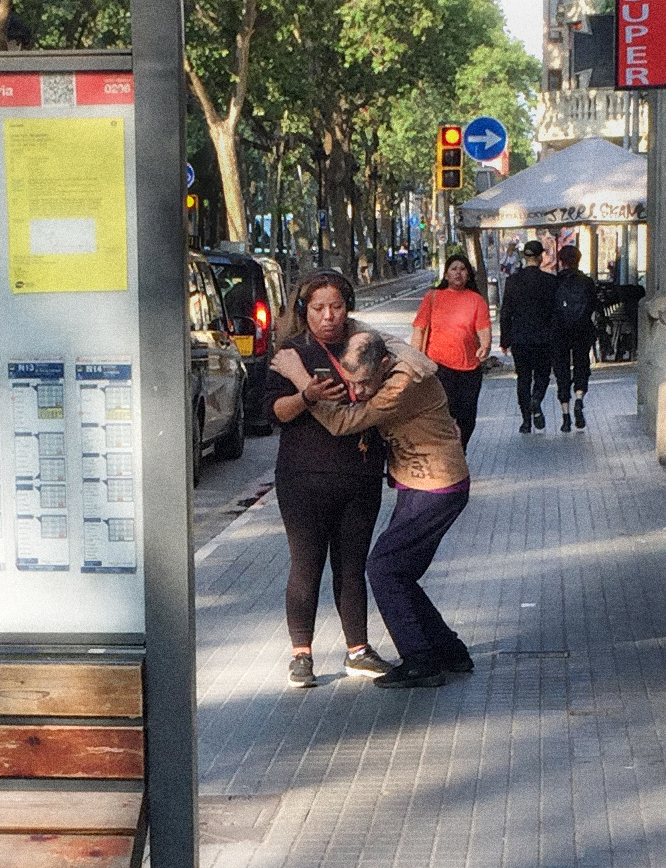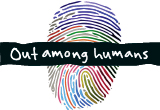 It wasn’t until the last morning that the sight of the woman supporting a man in distress on the Gran Via finally made sense.
It wasn’t until the last morning that the sight of the woman supporting a man in distress on the Gran Via finally made sense.
Gran Via, Barcelona – The stroll from Rocafort to the school on Diputación was planned months in advance – twelve minutes each morning, including a stop for coffee to go.
But the plan was soon ambushed by an unsettling sight.
Something had happened to a pedestrian who was being held erect by a woman frantically consulting her phone. There was no walker or medical-supply bag to suggest the man had a disability.
Some mornings later he appeared again, supported again at the same time and place by the woman consulting her phone.
Our professor, Iván Pardon, suggested she may have been one of the many, many Latin-Americans who hire out as caregivers for Barcelona’s “discapacidados.”
“Discapacidado” is the latest in a long series of politically correct words that have replaced previously politically correct words.
Using the discredited “invalido” or “disminuido,” Iván said, can bring a hush over a dinner party. The word “cáncer” has largely disappeared from polite conversation.
Maybe it happens in every language, words that refer to afflictions and injustices are banished with the hope that a new word will ease the pain attached to them.
It wasn’t until the last morning after five weeks that the purpose of the woman supporting her husband or father or client became clear.
She stood alone on the sidewalk as the van from Barcelona’s Institut Guttmann for Neurological Rehabilitation eased into the traffic heading toward the Ronda Litoral.
She seemed relieved. And she looked younger than before.![]()

Roberto Pontes
Hola, Pat! Qué tal? Te veo novamente en Barcelona. Aprovechas, amigo. Un grand abrazo.
Jenny Hager
Gracias por llamar mi atención a esta palabra tan útil. La he oído muchas veces, pero ahora voy a hacerla parte de mi vocabulario.